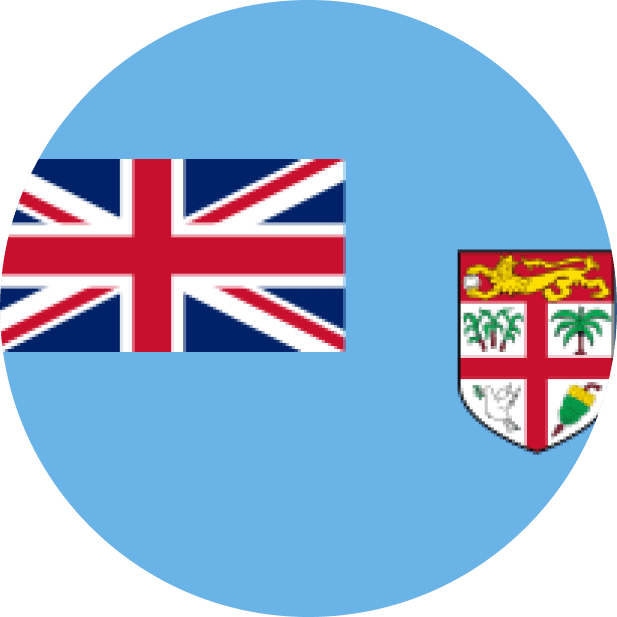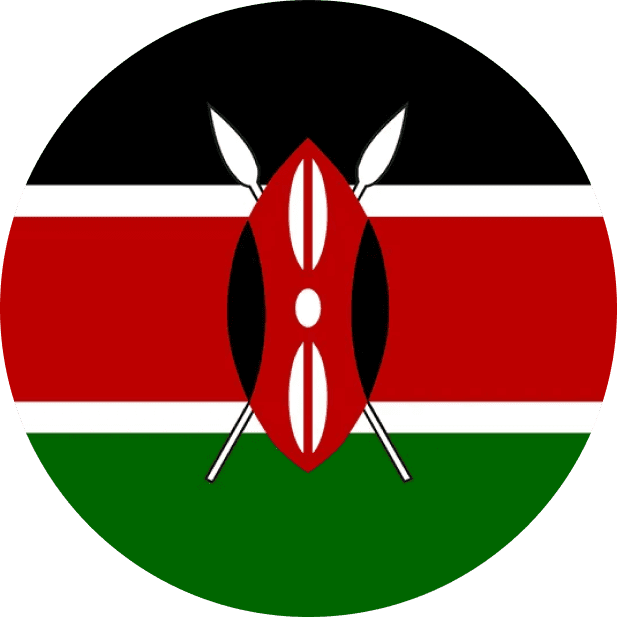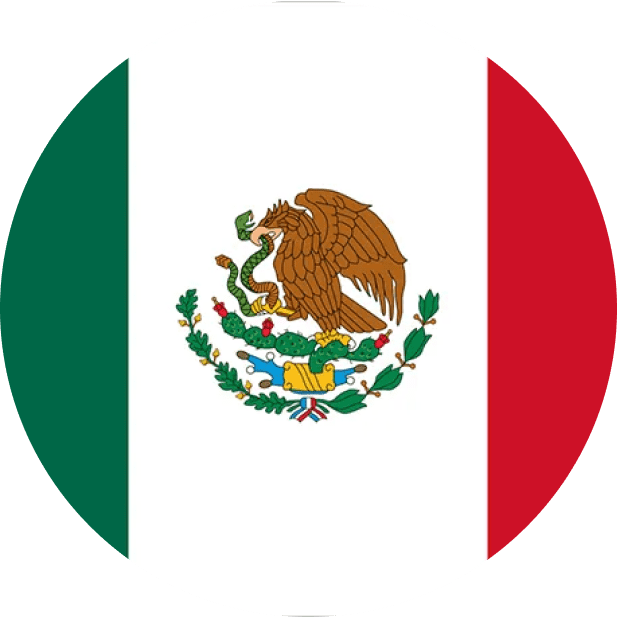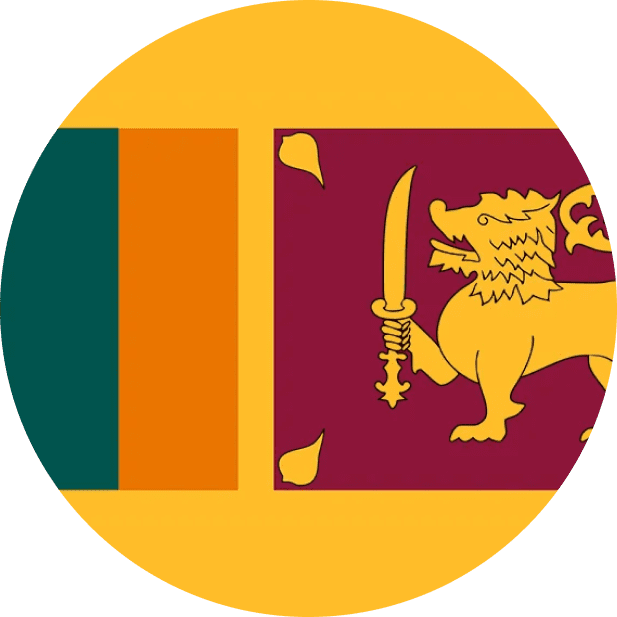Deirdre Breakenridge
![The Ultimate Communication Model for Modern Businesses - Deirdre Breakinridge [Interview]](https://assets-global.website-files.com/62d84b3d3ba446b2ec041a19/62d84b3d3ba4463a94042479_DeirdreBreakenridgeHeadshot.jpeg)
Deirdre Breakenridge is the CEO of Pure Performance Communications. She is a communications strategist, and the author of the book, Answers for Modern Communicators: An Effective Guide to Business Communication. She is also an author at Linkedin Learning, and she loves to give back to the PR industry by writing books and speaking on topics including marketing, PR, branding, and social media. We are very happy to have someone of her expertise in our interview series today.
Aishwarya Jain
![The Ultimate Communication Model for Modern Businesses - Deirdre Breakinridge [Interview]](https://assets-global.website-files.com/62d84b3d3ba446b2ec041a19/62d84b3d3ba44645c70423ea_aishwariya.png)
We have the pleasure of welcoming Deirdre Breakenridge today to our interview series. I’m Aishwarya Jain from the peopleHum team. Before we begin, just a quick intro of PeopleHum - peopleHum is an end-to-end, one-view, integrated human capital management automation platform, the winner of the 2019 global Codie Award for HCM that is specifically built for crafted employee experiences and the future of work.
We run the peopleHum blog and video channel which receives upwards of 200,000 visitors a year and publish around 2 interviews with well-known names globally, every month.
We are very happy to have someone of this stage and expertise in our interview series today Welcome, Deirdre. We’re thrilled to have you.
Deirdre
Thank you. It's so great to be here with you.
Aishwarya
Thank you so much for your time.
So Deirdre can start a little bit by rewinding your journey and what has brought you to your performance communications today?
Deirdre
Sure. So I was one of those students who knew all the way back in high school that I was going to be in communications. If you can imagine, I won an essay contest for a radio station, and at the time there we're in as many choices in communications as there are now that we see and the guidance counselor said to me, You can be a pure person or you could be a journalist.
And when I learned about public relations and how it's all about changing opinion and reputation and working with the media, that's the way that I went and I did that I was always working on the agency side. Then I pivoted. It became an entrepreneur and my own agency for years. And that's exciting in itself and then I turned the page so that I could write a lot of books, create a lot of courses and do one on one consulting work. And that's what I do for my company, Pure performance.
Aishwarya
And what do you think has been the hardest part of or the most difficult challenge of your career?
Deirdre
Well, I guess it's a challenge, but it's also an opportunity. So I look at it. Anything with the glass is half full, right? So I see the way that the media landscape changes, Technology changes. Consumer behavior is constantly changing, and that's just a way to stay on your toes and figure out new ways that you're going to reach people and build relationships and really be able to create some kind of impact. But has it been challenging? Absolutely. Because everything's changing on. Look at the situation we're in now. More changes and challenges.
Aishwarya
Yeah, absolutely. This is such a unique situation, and I think it's definitely affected communications as a function.
So can you also elaborate on your work? As you know, communications strategist, what is it all about?
Deirdre
Okay, so as a strategist and I've been in public relations and marketing for 30 plus years, and I have always focused on strategic communications, understanding your audience, that message development, the right channels you're measuring and making these real connections what I've realized and this is something that was a big wake up call for me, it was a personal tragedy with my family that has led me to feel and much more emotional intelligence.
You can take strategic communications and make great connections. But the difference between actually building a deeper relationship comes from what I call ‘feel’, which is a communications model. It was done after I embarked on a 52 plus week research journey studying millennials that you face fears, which means you're more open and inclusive. You engage with empathy. "You always use your ethics and good judgment, and you unleash the love so that you can match the passion from the people who you need to connect with and when you can feel, the relationship grows."
"You always use your ethics and good judgment, and you unleash the love so that you can match the passion from the people who you need to connect with and when you can feel, the relationship grows."
Aishwarya
That is so interesting.
So on this 52-week journey of researching about millennials, how do you think is the best way to cope with a generation that is a little bit different from the rest of them? They are probably more rebellious or they have their own thoughts, you know? So what do you think is the best strategy to handle millennials.
Deirdre
I think that I do a lot of work with leaders today and it is to understand that the study that I did I talked to over 75 millennials and I did speak with some members of Gen Z who were on the coattails of millennials. Millennials want the people around them to feel. All of the interviews that I did focus on. ‘Why don't leaders want to hear more of our perspective? Why aren’t they open and more inclusive?
It could be through any channel but pinpointing in the organization as well as on social media. ‘Why aren't they taking the time to be more caring and kind and to have understanding’ They specifically relate to transparency and good judgment. They're very sensitive to what's going on in terms of ethics out there, on communication, and also matching the passion.
So Millennials and Gen Z very much are about experiences, causes, the sustainability of the planet, human rights, animal rights and they're going to give business to brands who can also match that passion. And they want their leaders to be vocal and to take a stance so that some of the things that I learned, which it's not so easy for companies and leaders to feel, although they should.
Aishwarya
Sure, yeah, maybe I agree with you. It's really difficult to produce an inclusive and engaging environment when you don't understand, or you do not connect with the mindset of a millennial break.
So what is it that leaders can do to change the way they look at different generations? Are there some strategies that they can implement?
Deirdre
Yes. So one of the things I heard several stories along these lines where Millennials would say, in order for me to share there has to be trusted, trust in the environment, feeling safe in an environment. And that comes from the leader being more vulnerable. So there are a number of ways that you can approach this, whether it's in your team meetings, sharing things that aren't always ‘what's so great’, and ‘what's going on’.
But more things that are affecting you and what's affecting the team and what isn't always going right because millennials know that nothing is perfect and you have to show your vulnerability. One millennial shared a story about how disappointed her team was in the leaders of their company because one of their clients was in the ride-sharing business. And it was at a time of safety and ride-sharing and inside of the company.
The leaders were very vocal about safety and how they were feeling. But they weren't lending their voice externally on social media, and that for millennials was, well, why not? Why can't you take a stance? Why can't you show your passion? So these are all steps, but it really comes down to truly understanding the behavior, the way that they want to work, what their technology looks like, why they prefer texting over other forms of technology. "It takes a lot of digging to be able to communicate effectively. "
"It takes a lot of digging to be able to communicate effectively."
Aishwarya
Yes, that's true. Communication is at the core of everything that you do to be effective. As you said, millennials like more conversations and they're not just staying quiet and not talking about what they're feeling. It's all about the emotions.
Deirdre
They're also very entrepreneurial to So right now we're all working from home, right? In most cases, unless you're in essential business and for millennials and even Gen Z, this is something that feeds their spirit. They’re entrepreneurial in nature, design their day. You don't have to take the time to go into work. It's time well spent. This actually helps them and is better for them. This is also a generation who doesn't live to work but works to live.
“This is also a generation who doesn't live to work but works to live.”
Aishwarya
Yes, that is so truly working to live.
Do you think that there is a downside to this as well? Isn't that how millennials get affected too quickly? Or they cannot face challenges as much as probably the previous generations?
Deirdre
So I wouldn't say that. What I would say is that millennials and Gen Z are looking for more feedback and it's really important to approach feedback the right way. There's always gonna be challenges. And with these particular generations, the feedback has to always be focused on the behavior and helping them to exceed, and not anything that feels like a personal attack.
The six-month reviews that were always put in place where I own my own agency, we would have the one year annual, and then there would be a six-month interim review that doesn't work well with younger generations. Because if you pile on too much at once, it's overwhelming. It is so much better to have these regular touchpoints where one on ones so that they can have the feedback and be able to digest it.
And you're working together on the behavior so that whatever the work, performance is getting better and they feel good about it, too.
Aishwarya
So it's a continuous feedback cycle, which works with less, right? Yes, it really cannot be scheduled for them. It has to be a continuous training process to achieve their goal. I think that makes sense because the engagement of millennials and the Gen Z workforce now is a completely different model and a lot of them are digital.
So how do you think that engaging millennials and Gen Z as a workforce on social media platforms are changing with time and how do you craft a strategy for the streaming media across?
Deirdre
You know, several generations so It is definitely changing. There are two answers to this because when you are marketing and you're reaching them on social media during a pandemic, that's gonna look different because we all know that we don't wanna look like we're jumping on some kind of a bandwagon, that the marketing and what you're sharing is actually thoughtful.
Gen Z, I was just looking at a study from Amplify Solutions that came out. They did a study of Gen. Z during COVID and basically, Gen. Z said, We understand that businesses need to market to us and there will be advertising. They're more accepting as long as it's thoughtful. So that's just a note to all businesses out there. Yes, you can do it. Yes, you can communicate, but it has to be thoughtful. It's gonna be different.
So reaching generations on social media and crafting a strategy no matter what you do, it's always about listening, auditing, what works, where do people expect you to communicate with them? Where do they want you and where do they not want you? Or do they not want to be?
"So reaching generations on social media and crafting a strategy no matter what you do, it's always about listening, auditing, what works, where do people expect you to communicate with them? Where do they want you and where do they not want you? Or do they not want to be? "
So if you're going to Facebook to find Gen. Z or millennials. Not a great idea.
You would be much better off on Instagram, TikTok, Snapchat, and LinkedIn. I'm sure Gen X and boomers are there, too, and although younger generations know that they need to be there, they're not necessarily as active. But they go to Reddit for business information, and they have sub-reds. It's interesting because even my stepson, when he was looking for his internship, he went to Reddit to find out how Amazon does its internship hiring, to get the insights.
So it's very different. It's understanding where they are, where they want you to be, what type of content, right down to the media format, the length of the content shorter, shorter, shorter for younger generations. And then once you do connect, how are you going to feel is really important? And how are you gonna measure all of that? Because why bother communicating, connecting, and growing the relationship if you don't actually measure it? So there's a bit of a strategy in a nutshell.
Aishwarya
Yeah, thanks so much for that. I think that would help a lot of people because I think crafting a digital strategy is very essential, especially in times where we’re all remote and we cannot review door to door selling. So organizations are moving towards technology to look for their revenue.
Deirdre
Also, establishing credibility as a brand. There are so many brands going out there aligning your brand with others who are in the same space having influencers work with your brand. Get your brand ambassadors to share for yvou that credible third party endorsement, you know, putting my PR hat on now. Media bloggers, they all helped to lift your credibility. And then, of course, your advertising and your marketing support that.
Aishwarya
Absolutely. I think that's a wonderful way to connect with a lot of people and build a community that actually helps grow other people to become a knowledge piece that can really kind of spread out information, Good information, quality, information out there.
Deirdre
Right, people want to share when you bring good quality content. That's the key. So your content marketing, your quality content, people rally around good content, and they're going to share what excites them. They're gonna share what helps them. They're going to share what they think is thoughtful and what really energizes them.
Aishwarya
Absolutely.
And what do you think is a complete no-no for content marketing or creating a social media strategy?
Deirdre
I think if you take it from a ‘spamming me’ point of view, you're not going to do very well. So this is especially with younger generations, all about connecting with them and their experience and what type of experience you can provide that fits into their world. So understanding them is of utmost importance and anything that just looks like you are clearly all about yourselves and not really listening. It's not gonna help you.
Aishwarya
Thanks. It's not really about you, but it's your audience.
Deirdre
Exactly. And then what ends up happening is that they get excited about you and then they start sharing. And then there you don't have to push so hard with your content because you've got a bunch of amplifiers who can get others to act as well.
Aishwarya
Yes, yes, that's true. And do you know that there are a lot of startups that struggle to establish a brand name? So are there any tips that you like to give them to achieve their goals through social media?
Deirdre
Yeah. I mean, for the startups out there, make sure that you always focus on your customers because if you think about it, your customers are the ones. That's your main audience. You want them to be able to use your product or your service and to speak from a place of happiness, right?
And then once they do, it’s getting them as your brand champions to speak on your behalf and then use ways to build relationships with your community, use public relations is great for establishing trust and credibility. So you want to be able to tap into the media. Which media today is from your online news to your blogs, to your twitter, your Instagrammers, your YouTubers.
That is a great way to really amplify as you're building your brand and your content. You're getting others to help you. Those relationships are so valuable as a startup, and I would just also take note of the quality of the content that she put out. People are watching, they're listening. They're hungry for content, but it has to be good content.
"People are watching, they're listening. They're hungry for content, but it has to be good content. "
Aishwarya
Absolutely. The quality has to be there. Otherwise, I think even though you might just post really frequently around four-five times a day, but not really connect with the audience, right? I mean, there has to be frequency along.
Deirdre
Exactly. Yeah, I agree with that. It's always the quality over the quantity and takes the time. If somebody is willing to comment and to share their thoughts even if it's not the most positive, feedback. If somebody takes the time to share something and to say, Hey, this could have been better or Hey, I really like this. Take the time to comment back and to thank them. That gift of feedback is so important as you're a startup in a growing brand.
Aishwarya
Oh, yeah, Absolutely. I think especially right now if they put a strong message out there that they're doing something for the pandemic or they are staying strong during the storm, that message should be sent out pretty well into Social Media so that they get more visibility.
Deirdre
Yeah, Absolutely. I'm watching my colleagues. I'm always in awe of people who are giving and helping right now, and that is so important. And I think business professionals and students and anybody is looking for that kind of help, especially younger generations. You know, they do have anxiety, and there is more depression with this Stay home. They're social creatures, and they want to be out.
So anyway, that you any brands, really that are helping them to connect, to have social interactions. Those gaps are so important. They're doing their games. They're the ones that are really gonna win. And also online courses and professional development. That's also what younger generations are looking at for the future. Thinking of their futures as well.
Aishwarya
Oh, yes, absolutely. That a sound level of transparency in this that they like and they appreciate that. Organizations doing good work right now, I think they will definitely get noticed by a lot of millennials out there in an emergency. And I think I think that's really important.
And do you think that you know, the future of work is gonna be different now? What do you think is going to change in the coming few months or years?
Deirdre
So it's interesting because a lot of people are feeling a big difference and thinking this is the future in terms of working remotely all the time, where, in essence, this has been happening for a lot of professionals already. So, as a consultant, I've been training and doing consulting calls through Zoom for a while now. My husband, who works at EY. He really works from home.
His office is adjacent to mine, but once a week he would go into the office and it literally is to sign up for a conference room or sign up for an office you just plug-in. It's not like the desks that we used to have before the pictures on them, and everybody had their workstation. So I think we're going to see a lot more of that and businesses will be prepared.
Businesses are now thinking of all the connections and what they have to do to stay up and running for this future, which was kind of forced on us as a result of a global pandemic.
Aishwarya
Yeah, absolutely it was. So it was not really there on any site and suddenly now we're having to transform. And people who are not even comfortable with technology now are certainly having to really use it effectively to get some productivity out of it
Deirdre
And there will be mistakes made. Sometimes people forget they're on zoom, right? They do funny things. You know, I've been on calls where somebody shares their screen and then all of a sudden they forget they're sharing their screen and they’re looking at their email. So you know that we all have to just kind of step back and say, OK, let's be patient. Let's be careful. But most of all let's listen and let's have a little more understanding as we go through this.
Aishwarya
Yes, absolutely. And that's only people brought in the home into work, which is not really natural for them. And then when they have to turn their cameras on, it's just a little awkward for them because they are just so not used to it. It's funny.
Deirdre
It is, I am. I know a lot of my colleagues are moms and I was having a zoom call the other day and was catching up with a colleague and her daughter was there. And she's like, Oh, you know, hold on one second and a little girl comes and she says hi to me. But her little girl wanted to have a zoom playdate.
So you know, who would have thought that a seven-year-old would be having a zoom playdate while her mom is conducting business? But this is all the new normal that you have to navigate and kudos to all the moms out there who are making it work and dads, too, because it is quite the adjustment.
Aishwarya
Yes, absolutely actually that on. And, you know, to wrap this up. And I ask you, Deirdre if you have any other important soundbites that you'd like to leave us with?
Deirdre
Well, I just want to say that I always say, Feel first before you communicate, which means getting in touch with your own emotions and how you're doing, being more mindful and present so that you can have a better interaction and feel, of course, face your fears. Engage with empathy, use ethics and good judgment, and unleash love.
And if anybody wants to take a test to see how much they feel first, my team and I created a test. You can go to feelfirsttest.com and the test scores you. It evaluates and scores you and recommends exercises just to see how much you're in tune so that you can have a better conversation, or social media interaction, or in-person interaction. Hopefully soon. So that's what I would say.
"Feel first to be able to build a better relationship."
Aishwarya
Well, thank you so much that I think that sounds very interesting. And I would love to take that you adjust out there. It was really wonderful talking to you, and I really, really appreciate the time. Thank you so much for sharing your views with us.
Deirdre
Thank you. It was such a pleasure? I really appreciate the opportunity.
Aishwarya
Let's keep in touch and take care of yourself. Have a healthy time, Had a few and have a great day.
Deirdre
Thank you. You too, be safe.
Aishwarya
Thank you. Bye.































![The ultimate communication model for modern businesses - Deirdre Breakinridge [Interview]](https://assets-global.website-files.com/62d84b3d3ba446b2ec041a19/62d84b3d3ba446107d0448b2_Ultimate_communication_model_modern_businesses-min.jpg)



.jpg)
![How to stay relevant during a crisis - Rita McGrath [Interview]](https://assets-global.website-files.com/62d84b3d3ba446b2ec041a19/62d84b3d3ba446881d043992_Untitled%20design%20(13).png)
![Transforming adversity into opportunity - Rhett Power [Interview]](https://assets-global.website-files.com/62d84b3d3ba446b2ec041a19/62d84b3d3ba446eee4043850_untitled-design-(4)_optimized.png)












